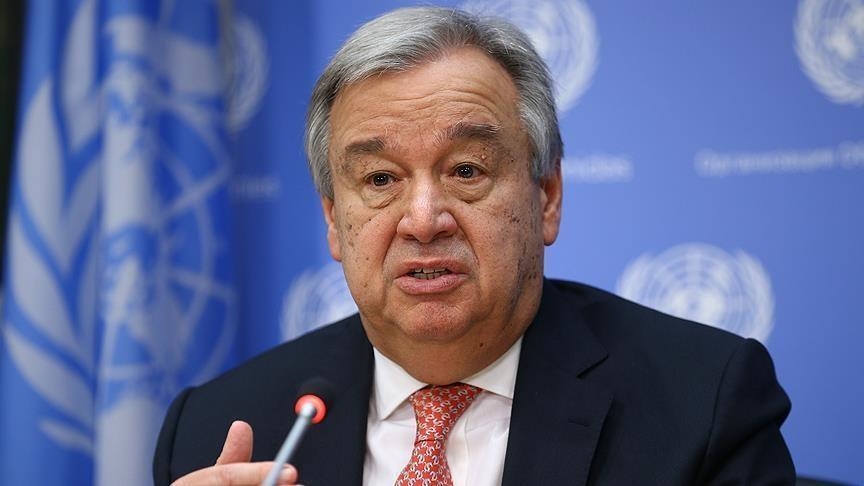

By Anadolu Agency
GENEVA
Global coordination is a must to not only build “safe and inclusive” artificial intelligence (AI) but also to make it accessible for all, the UN secretary-general said on Thursday.
In a video message to the opening day of the AI for Good Global Summit in Geneva, Antonio Guterres said that AI is changing the world and lives and it can “turbocharge” sustainable development goals (SDGs).
“AI could be a game-changer for the SDGs. But transforming its potential into reality requires AI that reduces bias, misinformation and security threats – instead of aggravating them,” he stressed.
It also requires assisting developing countries in harnessing AI for themselves, he said, adding that this would include connecting the unconnected, building capacity in computing power, data, and governance, and creating incentives for AI developers and deployers to share the benefits locally.
“We need global coordination to build safe and inclusive AI that is accessible to all,” he said.
Guterres recalled recommendations of his advisory board on artificial intelligence, which include an international scientific panel on AI that will conduct independent risk and opportunity assessments, a “structured” dialogue connecting governance initiatives and harmonizing standards across borders and sectors, and the “big effort” on capacity building with funding to meet the scale of the challenge.
Noting that the Summit of the Future in late September will see agreement on a global digital compact – an opportunity to lay the foundations of global AI governance, he said: “I count on you to help build momentum around these ambitious solutions.”
“Together, we can harness AI to help achieve the sustainable development goals and leave no one behind,” he concluded.
One-third of humanity remains completely offline
Doreen Bogdan-Martin, secretary-general of the summit organizer International Telecommunication Union (ITU), addressed the gaps to bring all countries to the table, including developing and least developed countries.
“In 2024, in the age of AI, in the age of unimaginable opportunities, one-third of humanity remains completely offline, excluded from the AI revolution without a voice,” Bogdan-Martin said in her opening speech. “What we in this room take for granted remains completely foreign to 2.6 billion people around the world.”
She stressed that this “digital divide” is no longer acceptable.
According to the ITU head, three pillars are needed to not only drive inclusion, inclusive growth and innovation, but also help to build a safer and more secure digital future for all.
Those pillars include risk and security management, infrastructure and resource and skill development, and lastly, international collaboration, Bogdan-Martin said.
“The risk of fragmenting the governance landscape is real,” she said, adding: “There are still pressing gaps that we must address and we need to bring everyone to the table, including developing and least developed countries.”
Two-day AI for Good Global Summit began in Geneva on Thursday with an aim to discuss how best to implement principled AI frameworks while ensuring that no country is left behind.
ITU said the summit is taking place with support from over 40 UN agencies and Switzerland, and the attendance of 300 experts.
We use cookies on our website to give you a better experience, improve performance, and for analytics. For more information, please see our Cookie Policy By clicking “Accept” you agree to our use of cookies.
Read More